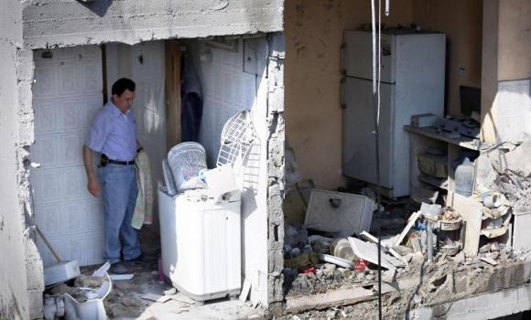
Gaza Strip, Jul 11: Israel has continued its major airstrikes on the besieged Gaza Strip for the third consecutive day, killing more than 90 Palestinians, including women and children.
On Thursday, Israel escalated its air campaign targeting hundreds of sites in the enclave.
At least three people, including a child, were killed in Israeli attacks in Gaza's northern cities of Beit Hanoun and Beit Lahiya.
Three others also lost their lives in Jebaliya after an Israeli strike hit their vehicle.
Earlier in the day, eight people were killed after Israeli jets bombed a building in the Gazan city of Khan Younis. Eight more people were also killed in an air strike on a beach cafe, where people were watching a football match between Argentina and the Netherlands.
Palestinian health officials say at least half of the casualties are civilians, including women and children.
Israel also mobilized 20,000 soldiers for a possible ground invasion of the Gaza Strip.
Meanwhile, Egyptian authorities temporarily opened the Rafah crossing to receive hundreds of injured Palestinians for medical treatment. The border had been closed since the ouster of Egyptian president, Mohammed Morsi, last year.
In retaliation, Hamas also fired more than 200 rockets from Gaza into Israeli towns and cities. Israeli media reports say that only some 60 of those rockets were intercepted by its US-funded Iron Dome missile system.
Sami Abu Zuhri, a Hamas spokesman, said that Tel Aviv is committing war crimes in the enclave, calling on the international community to take actions.
"We confirm that what is happening in Gaza are real war crimes that take place while the world is standing in silence,” he said.
“We as Palestinians confirm that we will use every means to protect our Palestinian people," he added.





Comments
Add new comment